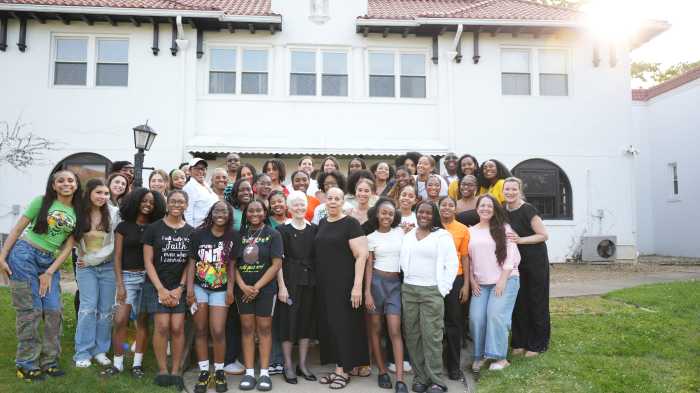Wash. appeals court affirms ex-con, infected in prison, criminally exposed partners to risk
On May 16 the Court of Appeals of Washington upheld a minimum sentence of 178 years in prison for Anthony Eugene Whitfield, at once a victim and a victimizer, who transmitted HIV to five women and placed an additional dozen women at risk.
Rejecting a variety of constitutional arguments, the court found that the sentence was not excessive in light of the aggravated circumstances of the case.
The tragic tale begins with Whitfield as a prison rape victim in Oklahoma, acquiring HIV, and learning he was infected in 1992. Whitfield was released from prison in 1995. At that time, a psychologist at the prison noted that Whitfield “is well aware of the consequence of his disease and this seems to frighten him. If he becomes a threat to the public it will not be because of ignorance.”
Whitfield moved to Washington State in 1999 and initiated a string of sexual liaisons, during which he never informed any partner that he was HIV-positive and usually refused to use condoms. He got three women pregnant, and was finally discovered by law enforcement authorities as a result of contact tracing procedures by the Thurston County Public Health Department when some of his infected victims identified him as a former sex partner.
At one point, a public health official got Whitfield to come in for testing, notified him that he was infected, and had him sign a statement acknowledging that he had received counseling, but the evidence showed that Whitfield threw away his copy of the counseling materials and continued to engage in unprotected sex.
A friend of one of Whitfield’s sex partners testified that the subject of HIV came up in a conversation because she was a home care nurse. The friend said that Whitfield had commented that if he had HIV, he would infect as many people as he could. There was testimony that he made statements like this to other people as well.
Prosecutors filed a 17-count first-degree sexual assault charge against Whitfield. After he was locked up, he called his most recent girlfriend three times to attempt to persuade her to testify that he had told her he was HIV-positive before they had sex, despite a court order that he not contact her. As a result, the charges were amplified by three counts of witness tampering and three counts of violating a no-contact order.
Whitfield waived a jury trial, and argued before Thurston County Superior Court Judge William Thomas McPhee that all his sex had been consensual with adults who understood the risks of unprotected sex, but this defense cut no ice with McPhee, who refused to let Whitfield present evidence on the point.
A clinical psychologist offered expert testimony that he had found “no evidence, psychologically, that his assaultive conduct was intentional. Hence, it seems to me a diminished capacity defense is appropriate.” McPhee gave this evidence little credence.
Whitfield was found guilty by McPhee on all charges except for one of the witness-tampering charges, evidently finding insufficient evidence that one of the phone calls specifically dealt with proposed testimony. That made little difference in the sentencing however. Whitfield was sentenced to a cumulative total of 2,137 months in prison, or slightly more than 178 years, with no possibility that he could ever be released.
Writing for the court of appeals panel, Presiding Justice Elaine Houghton rejected every argument Whitfield raised, disagreeing with his contention that the sentence constituted “cruel and unusual punishment” in violation of the state constitution. She concluded that based on every factor Washington courts consider in evaluating sentences, Whitfield had fully merited his sentence, which was not “arbitrary and shocking to the sense of justice.”
“Whitfield had intercourse with 17 women, repeatedly concealing his HIV status and insisting on unprotected sex,” Houghton wrote. “Thus, he committed first-degree assault, intentionally exposing victims to HIV. This is a serious and violent offense against a person… Whitfield asserts that he would be facing a more lenient sentence if he had committed murder. His argument lacks merit because he fails to show how his sentence is so grossly disproportionate to the gravity of the number of his convictions that it constitutes cruel and unusual punishment.”
The court also rejected Whitfield’s argument that he should not have been subjected to punishment because all of his sex partners had “consented” to have unprotected sex with him. The defendant protested McPhee’s refusal to let him raise a consent defense at trial, but Houghton wrote, “Whitfield asserts that ‘the risk of contracting a gamut of sexually transmitted diseases—including HIV—is eminently foreseeable and an inherent part of engaging in unprotected sex.’ Whitfield’s assertion does not persuade us because a person cannot consent unless he or she knows all relevant facts.”
The court also rejected equal protection arguments, which Whitfield based on his contention that HIV-positive people had been singled out for prosecution, and that the state was not going after people exposed their sex partners to other sexually transmitted diseases. The court noted that in fact state criminal statutes also apply to other diseases, but that greater punishment for HIV transmission is justifiable.
gaycitynews.com



































